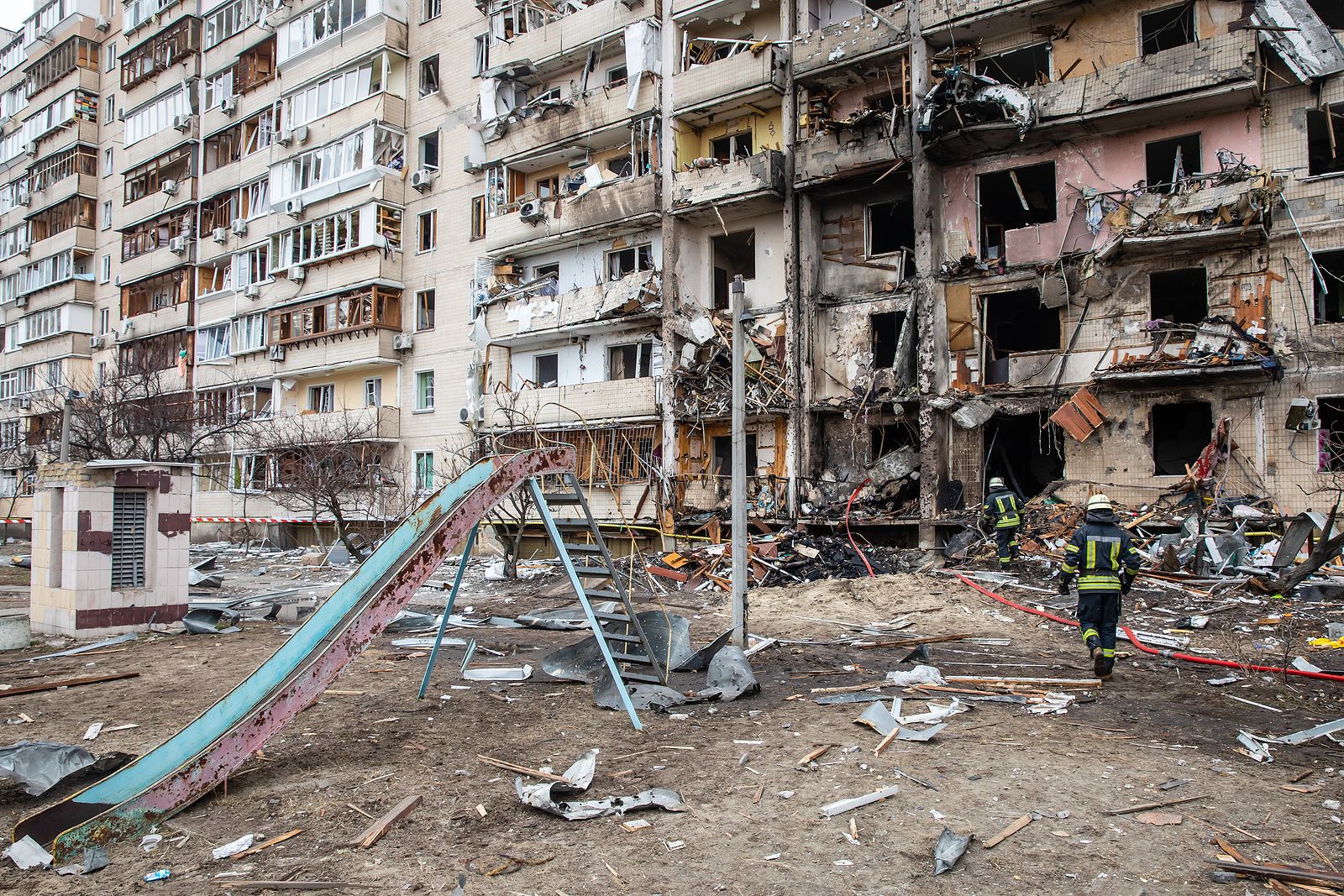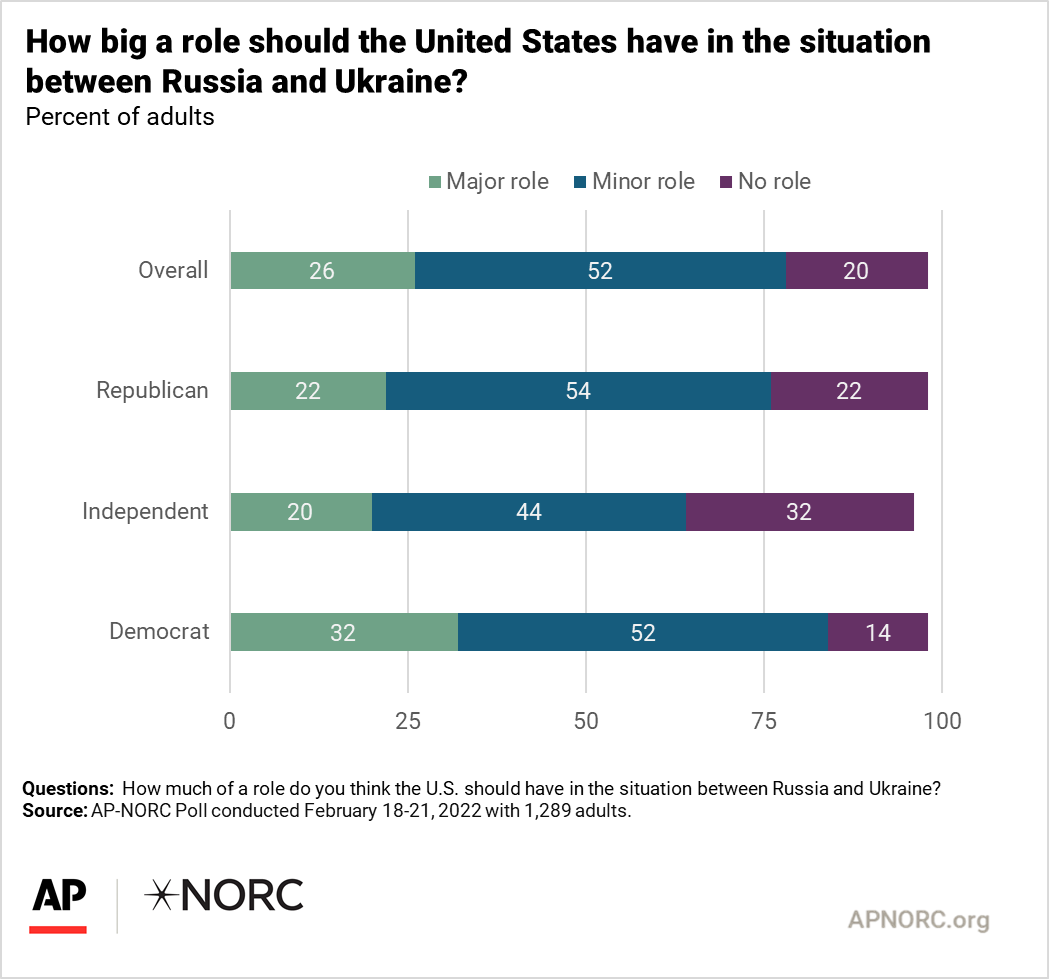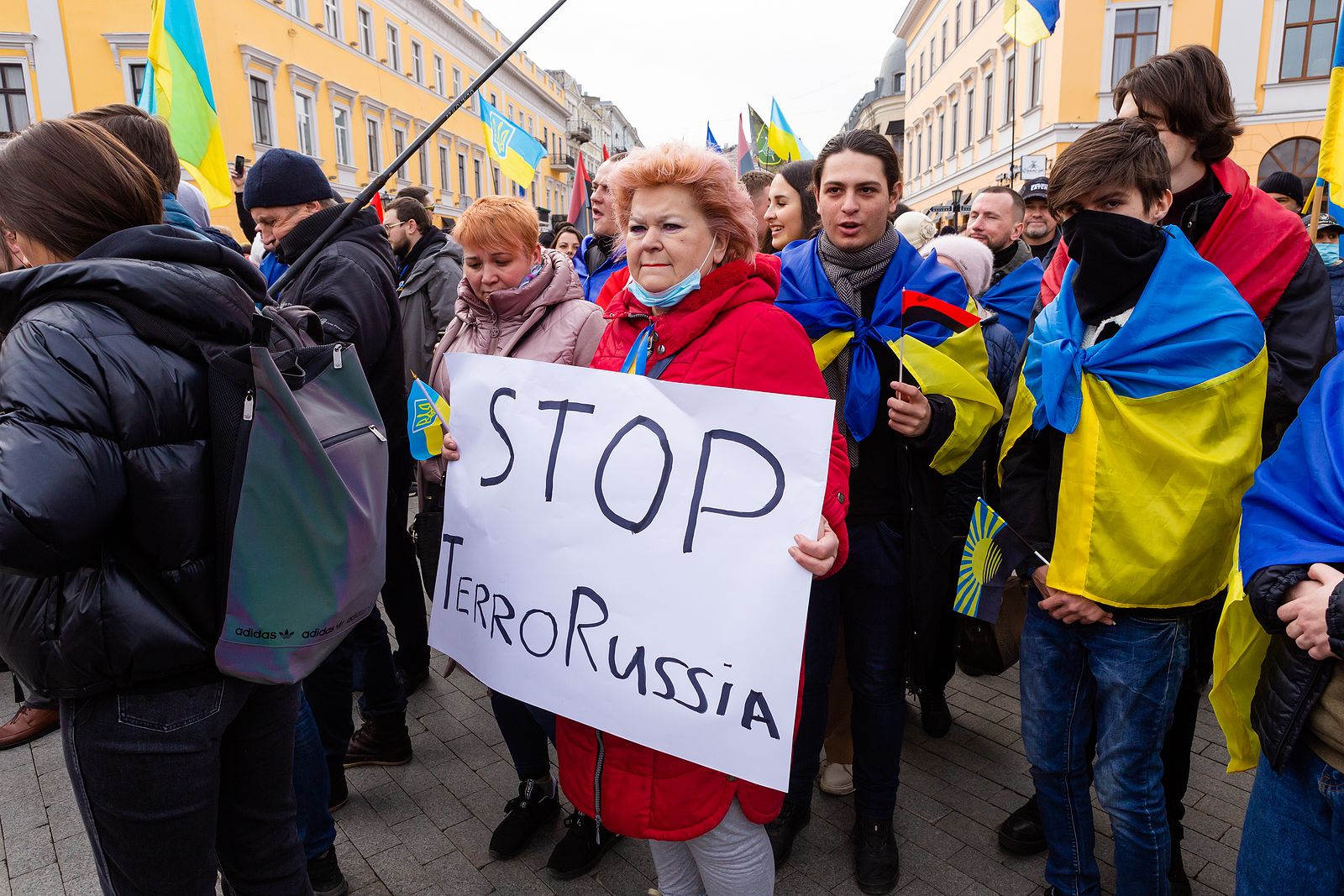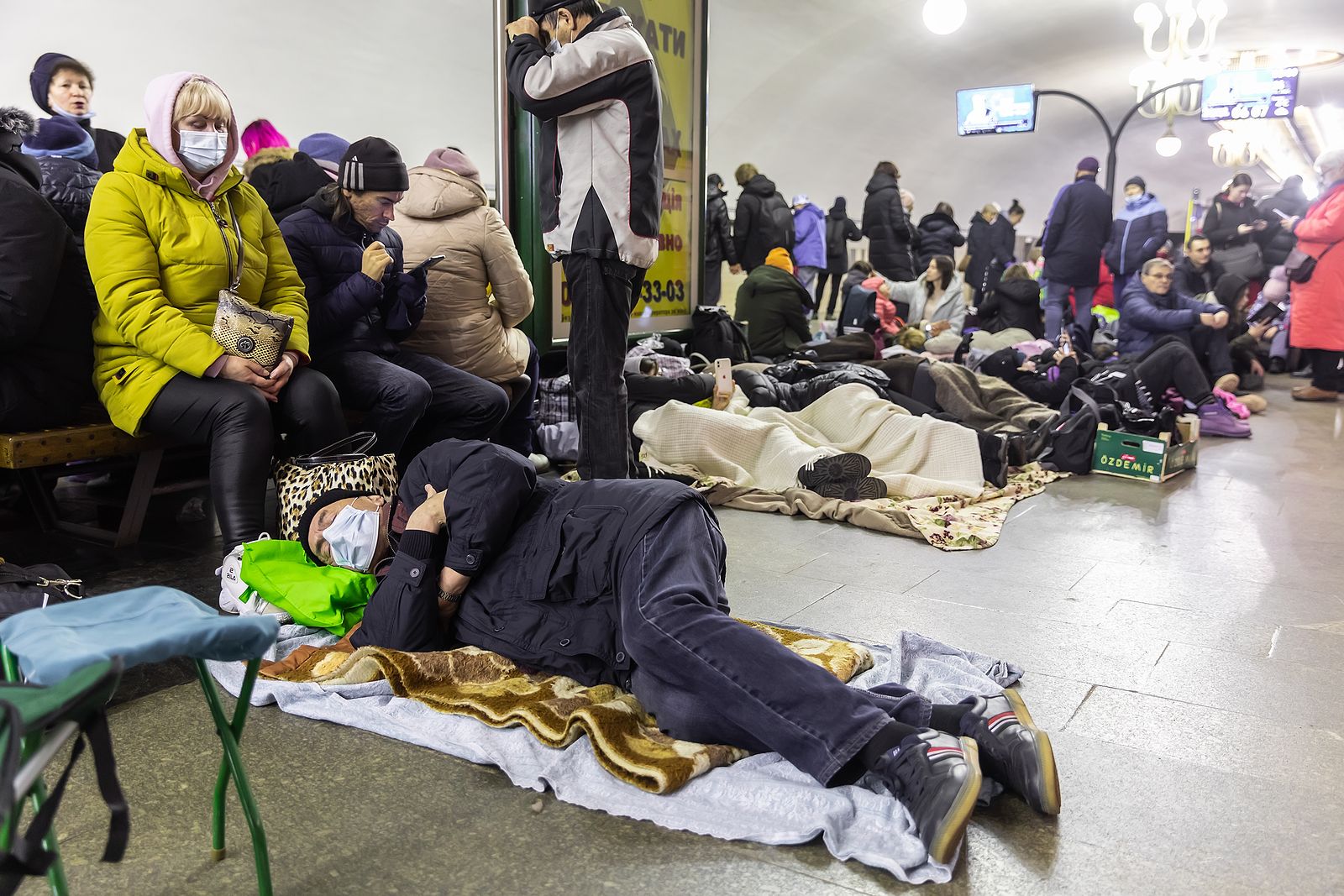As a Russian-American, I Stand with Ukraine
Over 30 years after Ukraine’s declaration of its sovereignty, there is no question of whether or not the nation should have authority over its territory.

As the war between Russia and Ukraine escalates by the hour, the world is watching in anticipation. Sights of bombings, airstrikes, and upwards of 100,000 Ukrainian refugees fleeing in advance of Russian troops have dominated global news and left viewers with a vivid picture of the Putin regime’s horrific aggression.
As a second-generation immigrant with ancestry in both Russia and Ukraine, I've found the recent invasion disturbing to face from afar. While I identify as ethnically Russian, my lineage traces back to the border of the two nations, most notably in the Kharkiv Oblast of Eastern Ukraine.
Parallel to this intertwined ancestry are the historic cultural ties between Russia and Ukraine which date back to the origins of Kievan Rus—the first East Slavic state which reached its peak in the 11th century—and remain strong leading up to the fall of the Soviet Union in 1991.
However, these strong ties have not always benefited Ukraine, which has been repeatedly subjected to Russification. Yet, Ukraine has managed to develop and preserve its beautiful language and traditions as it remains a distinct nation with its own identity and aspirations.
Now, over 30 years after Ukraine’s official declaration of its sovereignty, there is no question of whether or not the nation should have authority over its rightful territory.
Still, with Putin’s notoriously power-hungry and egotistical demeanor on the forefront of the crisis, the Kremlin will not back down, demonstrating to citizens across the globe that the remnants of brutal Soviet power have not disappeared.
Once again, Putin has put down his iron fist and sparked global fear for the potentially catastrophic outcomes of the war. In a surprise appearance on Russian state television, the President threatened all nations that dared to set their boots on Ukrainian soil.
Putin defends Russia's "military operations."
“Whoever tries to interfere with us, and even more so to create threats for our country, are people that should know that Russia’s response would be immediate and will lead you to such consequences that you have never seen in your history,” Putin, marked with a stone-cold expression, said—denoting the potential use of nuclear weaponry.
A masterful liar, Putin refrained from using the term “war,” describing the attack as a limited military operation geographically confined to a small Russian-speaking region of Ukraine—an operation ostensibly designed to protect Russians on the other side of the border.
While the United States reinforces its troops stationed in Europe, the North Atlantic Treaty Organization (NATO) has no plans to fight Russians in Ukraine and risk a global nuclear confrontation. Nonetheless, NATO allies support the Ukrainian government with military equipment and exert significant pressure on Russia, including substantial economic sanctions to stop the aggression.
Luckily for Putin, Biden claims that the United States does not want to intervene, as there are no national security interests for either nation, according to a BBC report. In support of this decision are the 72 percent of Americans who believe that the U.S. should exert little to no mediation in the Russian-Ukrainian war.

AP-NORC conducted a recent poll amongst 1,289 adults on the extent to which the United States should interfere in relations between Russia and Ukraine.
AP-NORC conducted a recent poll amongst 1,289 adults on the extent to which the United States should interfere in relations between Russia and Ukraine.
Contrary to the freedoms of the West, mass protests in Russia have led to the arrests of 1,800 courageous civilians in one night, who risked potentially-lethal consequences to oppose Russian propaganda. Yet, Russia has exerted almost all of its efforts to suppress internal dissent, from imposing restrictions on Facebook usage among the circulation of #NoToWar, to vetoing a resolution by the United Nations Security Council that denounces the nation’s actions towards Ukraine.
However, despite the Kremlin’s aggression and intimidation tactics through military might, the Russian population as a whole should not be to blame, as the majority of which support the Ukrainian cause.
A report from The Guardian published the night following the invasion documented the anguish of Russians who attended pro-Ukrainian protests.
“I am embarrassed for my country,” Nikita Golubev, a 30-year-old teacher in Moscow, said. “To be honest with you, I am speechless. War is always scary. We don’t want this. Why are we doing this?”
Other protesters remain in denial of the future, condemning their government, yet doubtful that the situation will escalate, considering that the neighboring countries share such strong cultural connections.
“I didn’t think Putin would be willing to go all the way. How can we bomb Ukraine? Our countries have their disagreements, but this is not a way to solve them,” Muscovite Ksenia, another Russian protester, told the publication.


Displaced Ukrainians are looking toward subway stations for temporary bombing shelters as they hope to seek refuge outside their nation. Photo courtesy of BigStock.
Displaced Ukrainians are looking toward subway stations for temporary bombing shelters as they hope to seek refuge outside their nation. Photo courtesy of BigStock.
While the Kremlin’s decision undeniably violated the sovereignty of Ukraine and resulted in horrific civilian turmoil, I cannot help but fear what will come next for Eastern Europeans across the globe. This especially applies to those with limited knowledge of Ukraine’s deep-rooted cultural origins and a factual assessment of the current situation.
Not only have the United States and Russia been geopolitical adversaries in just about everything before the dawn of the Cold War, but many Americans fail to distinguish the Kremlin’s behaviors from those of the Russian population.
There is an already culturally-accepted demonization of Russian culture and language here, and the recent invasion of Ukraine does nothing but exemplify these stereotypes. I do not intend to justify any of the Kremlin’s actions; however, most times, the distinction between Putin’s agenda and the general sentiments of the Russian population is not acknowledged nor understood. This is mainly due to the Russian censorship of media that persists beyond the fall of the Soviet Union, where many citizens risk imprisonment for speaking their truth.
I can vividly recall my own experience encountering Anti-Russian sentiments here in Boston, a reputedly educated city. “I don’t do business with Russians,” a local dance retail manager once shared.
The racist and heart-wrenching statement arose as the manager addressed my question of whether the store carried the products of a widely-sold dancewear company based in Moscow. Upon hearing my request, she chuckled before explaining her reasoning for not wanting to do business with “corrupt” people.
Now more than ever, we need to remain adamant about not losing sight of the distinction between the flawed Russian government and the people as we approach current events through a critical lens.
War remains a vindictive power game for the tyrannical, and Russians, along with citizens across the globe alike, fear the consequences of such a war.
However, one aspect of the invasion sets apart this war from every other in history: the access to technology at our fingertips.
In a New York Times report, journalist Thomas L. Friedman described the Russian invasion as “a raw, 18th-century-style land grab by a superpower—but in a 21st-century globalized world.”
“This is the first war that will be covered on TikTok by super-empowered individuals armed only with smartphones, so acts of brutality will be documented and broadcast worldwide without any editors or filters,” Friedman wrote.
Just to be clear: Ive not eaten all day, not had access to toilet facilities for 15 hrs, been queuing for 9 hrs and not had a shower for 3 days. I’m not ok but it’s not about me. The Ukr-Polish border is a nightmare. There’s 10,000s here: mothers with children, intl students etc
— Maria Romanenko (@rommari) February 25, 2022
Watching the news coverage of fighting and human suffering in Ukraine, I feel powerless as the least I can do is add my voice to the chorus of protests.
My thoughts mirror those of many Russian Americans. People of Ukraine, we are praying for your safety. This war should end immediately. As stated by your heroic President Volodymyr Zelinsky, who refuses to leave the embattled Kyiv, “Glory to Ukraine!”
"The president is here." President Volodymyr Zelensky of Ukraine posted a video on social media showing him standing alongside other government officials, saying that the country’s leaders had not fled Kyiv as Russian forces entered the city. https://t.co/VPxc01QGAG pic.twitter.com/F91xlEp7we
— The New York Times (@nytimes) February 25, 2022